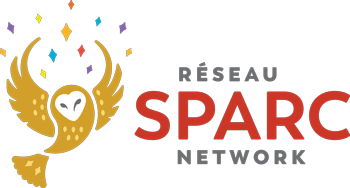The Poets Are Still Alive
A new blog by Jimena Yengle
Poetry is something I like to call a small, everyday miracle—a beautiful and daring human experiment. And those of us who write it are part of a collective desire: to know what it means to be alive. In a world that distracts us with noise, algorithms, rush, and competition, emerging poets—especially those from vulnerable and underrepresented communities—prove that it’s still possible to listen, to feel, and to transform. They are living proof that words cannot be hidden, that voices will not remain silenced. Proof that art endures and that together, as a community, we continue to feel collectively, learning from one another, inspiring each other, and creating from what we believe in.
I come from Latin America, a region where poetry seeps into the cobblestones of the streets, the unnoticed love songs, and the graffiti that screams revolution. Yet, few dare to say they "write poetry," often because there are no safe spaces to create and be heard. There, I learned that the words we hide in our hearts are both a refuge and a cemetery. We need to feel safe to keep writing. But I also discovered that poetry is a collective act: we grow, and we have so much to say, but we become poets in community. The beauty we share, the meanings we assign to simple things, are rooted in our interactions with the world.
Now, living in Ottawa, Canada, I see how this truth crosses borders. Here, in a community diverse in voices and talent, I’ve found echoes that not only resonate but intertwine. It is in safe communities that we learn to write from the depths of our being, where fears transform from obstacles into raw material and dreams take shape as extensions of what we create. We inspire each other, feeding an endless cycle of creation. Our words are like sparks from a campfire at summer camp; in a safe space, those sparks ignite flames, embrace ideals, reveal invisible paths, and remain glowing for more than just one night.
We need those spaces where we can be poets. Where our words can find a true home—a place where we can risk being vulnerable, authentic, and human.
If there’s one thing I’ve learned from working with youth and vulnerable communities, it’s that the act of writing poetry should never be dismissed as a solitary endeavor. Introspection has its value, but the real magic happens when we share our art. The problem is, we don’t always have the opportunity to do so. But when we do, our stories become archipelagos, sharing the same waters. In every reading, every comment, every word that comes to life after a poem is read aloud, something connects us as a society. And it’s beautiful to remember that we are inhabitants of the world, not just identification numbers.
It is both our power and our responsibility to be a community. By creating safe spaces for emerging artists where poetry can flourish, we not only nurture creativity but also foster hope. We offer an option to those who believe they have few—or no—alternatives. These spaces don’t need to be big or formal. Sometimes, a circle of chairs, a sketchbook, and a tacit agreement to treat what is shared with respect and love are enough. Among human beings, what must prevail is awareness and the value we give one another as companions.
Poetry as Resistance and Rebirth
Emerging poets from underrepresented communities don’t just write—they resist. And perhaps that is one of the hardest tasks. In their words, we find memory and protest, but also dreams and reinvention. Let’s ensure those dreams continue to grow. I try to remember that poetry doesn’t just belong in my favorite libraries; it’s in the street where I used to live, in children’s classrooms, in plazas, in the yard of a high school. It’s in the resilient hearts of those who continue to create and see art as an alternative—a path for change.
Poetry may have a quiet strength. It changes both those who read and those who write it, and afterward, those people have the power to change everything. Today, more than ever, I can say that poets are alive! Everywhere in the world, because we continue to dream together, learn together, and create together. But let’s draw closer to one another, let’s meet, because discovering life and navigating its complexities is much more manageable when we are accompanied. And as long as we continue building safe spaces where words can grow, poets will not only stay alive—we will build a more humane future.
